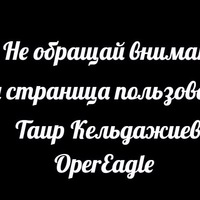
Римский император Константин подписал «миланский эдикт» провозгласивший свободу христианского
вероисповедания. Как вы считаете союз короля и христианской церкви был взаимовыгоден? 0
0
 0
0
Ответы на вопрос
 Внимание! Ответы на вопросы дают живые люди. Они могут содержать ошибочную информацию, заблуждения, а также ответы могут быть сгенерированы нейросетями. Будьте внимательны. Если вы уверены, что ответ неверный, нажмите кнопку "Пожаловаться" под ответом.
Внимание! Ответы на вопросы дают живые люди. Они могут содержать ошибочную информацию, заблуждения, а также ответы могут быть сгенерированы нейросетями. Будьте внимательны. Если вы уверены, что ответ неверный, нажмите кнопку "Пожаловаться" под ответом.

Ответ:
Церковь нуждается в финансовой поддержке и военной защите от короля. Король нуждается в союзе с Папой и нуждается в Папе, чтобы быть объявленым законным императором и наделенным Богом данной властью.
Например, Пиппин отдал землю Папе как подарок в честь союза с Папой. Другой пример, Папа, Лев III разместил корону на Карле Великом и объявил его императором Священной Римской империи, потому что он завоевал саксонские племена, которые были угрозой для церкви и, в последствии, заставили их обратиться в христианство
 0
0
 0
0

The Edict of Milan and the Alliance between Emperor Constantine and the Christian Church
The Edict of Milan, signed by the Roman Emperor Constantine in 313 AD, proclaimed religious tolerance and granted freedom of worship to Christians within the Roman Empire. This edict marked a significant turning point in the relationship between the Roman Empire and the Christian Church.
Was the alliance between the king and the Christian Church mutually beneficial?
The alliance between Emperor Constantine and the Christian Church can be seen as mutually beneficial for several reasons:
1. Political Stability: Constantine's alliance with the Christian Church helped to stabilize the Roman Empire. By embracing Christianity, Constantine gained the support of a significant portion of the population, which helped to consolidate his power and maintain stability within the empire.
2. Religious Unity: The alliance between Constantine and the Christian Church contributed to religious unity within the empire. Prior to the Edict of Milan, Christianity had faced persecution and was considered a minority religion. The edict not only granted freedom of worship to Christians but also recognized Christianity as a legitimate religion. This recognition helped to foster a sense of unity among Christians and contributed to the growth and spread of the faith.
3. Economic Benefits: The alliance between Constantine and the Christian Church also had economic benefits. With the support of the emperor, the Christian Church gained access to resources and privileges, such as tax exemptions and the ability to own property. This allowed the Church to expand its influence and establish a more organized structure.
4. Political Legitimacy: For Constantine, aligning himself with the Christian Church provided political legitimacy. By associating himself with a rapidly growing religious movement, Constantine enhanced his own image and authority. This alliance helped to strengthen his rule and gain the support of the Christian population.
It is important to note that while the alliance between Constantine and the Christian Church was mutually beneficial, it also had its complexities and challenges. The relationship between the Church and the state continued to evolve over time, with both positive and negative consequences.
[[1]]
 0
0
 0
0
Похожие вопросы
Топ вопросов за вчера в категории История
Последние заданные вопросы в категории История
-
Математика
-
Литература
-
Алгебра
-
Русский язык
-
Геометрия
-
Английский язык
-
Химия
-
Физика
-
Биология
-
Другие предметы
-
История
-
Обществознание
-
Окружающий мир
-
География
-
Українська мова
-
Информатика
-
Українська література
-
Қазақ тiлi
-
Экономика
-
Музыка
-
Право
-
Беларуская мова
-
Французский язык
-
Немецкий язык
-
МХК
-
ОБЖ
-
Психология
-
Физкультура и спорт
-
Астрономия
-
Кыргыз тили
-
Оʻzbek tili

























